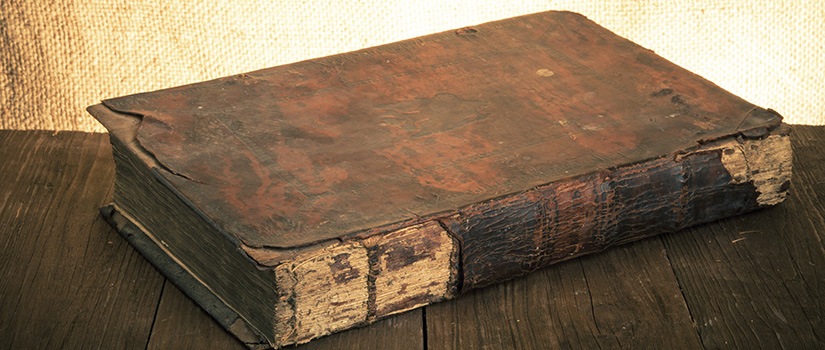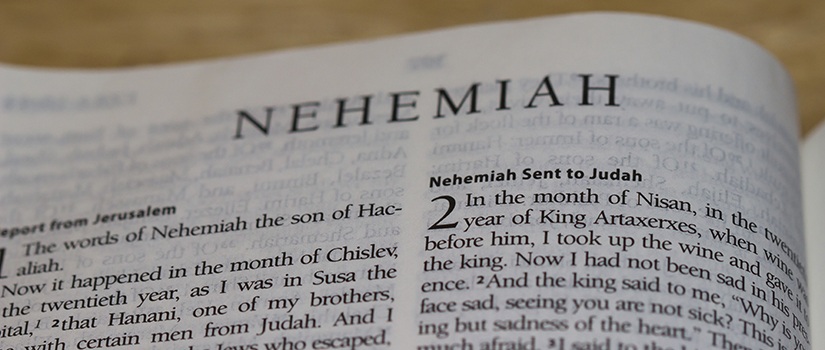Page Three Of Beware The Traveler
5. CAN WE ENTERTAIN THE TRAVELER OR WAYFARER WITHOUT COST?
Romans 6:23. “For the wages of sin is death; …”
The moral law of God is just as sure as his physical laws. Anyone who attempts to break the law of gravity will pay the consequences. By the same token the moral law, when broken, has its own consequences built in, which must be paid.
THE REWARDS OF INIQUITY:
There is one feature common to a great many, perhaps more or less to all, acts of iniquity, that is, that they have, so to speak, a double reward.
There is the reward which the person fantasized as the fruit of his misdoing; and there is the reward which he lost sight of, but which followed by the inevitable necessity of the moral law of God. Both are clearly exhibited in the awful case of David, and also of Judas Is-car’-i-ot.
Acts 1:18. “Now this man purchased a field with the reward of iniquity; and falling headlong, he burst asunder in the midst, and all his bowels gushed out.
19. And it was known unto all the dwellers at Jerusalem; insomuch as that field is called in their proper tongue, Aceldama, that is to say, the field of blood.”
The reward which he looked for, and for the sake of, which he betrayed the innocent blood of the SON OF MAN, was the possession of thirty pieces of silver.
We know the poverty of the SON OF MAN, and that he had no silver or gold, no houses or lands, with which to reward his followers.
We know how days of toil succeeded one after the other during which the gains were indeed immense—souls nourished, enlightened, instructed in the word of God, prepared for the kingdom of heaven, weaned from sin, won to righteousness—but not such gains as would please the worldly mind.
And we know the mind of Judas, that it was very covetous and greedy of filthy lucre. We know with what eyes he looked upon Mary’s costly offering of love, and he was wont to rob the bag which contained the alms for the poor (John 12:3-6).
Perhaps Judas had set his heart upon that very field which was bought with the price of blood, and which was to become his, and the strangers, burial ground.
He did the deed and he got the money, “the reward of iniquity”—the reward which he looked for as the fruit of his sin.
And sinners very often do get their expected reward.
Adam and Eve became “as Gods, knowing good and evil;”
Esau got his bowl of “pottage of lentils, and he did eat and drink.” THE HIGHEST PRICE EVER PAID FOR A MEAL.
A’-chan got the “Babylonish garment and two hundred shekels of silver and a wedge of gold of fifty shekels…”
Gehazi obtained his two talents of silver and his two changes of garments.
Ahab got possession of the coveted vineyard.
Zimri gained a throne by the slaughter of the household of Baasha.
Each of these, and many more, by ambition, greed, revenge, covetousness, lusts, hatred, continually, by iniquity, obtain their reward, and the pages of scripture and of profane history, as well as our own experience, teem with examples of the reward of successful wickedness.
But, now, let us look at the other reward of iniquity; that which comes in due season as the inevitable fruit of the just judgment of God. A study of each of these we have listed will reveal that after receiving the reward of iniquity also received a just reward.
Judas has got his money. Perhaps he has concluded his bargain for the field. He is no longer a poor man like his master. The former gains of robbery have been swelled by the price of treachery.
But he has forgotten his manhood. He has forgotten that man has a conscience, and that a guilty conscience is like the raging sea, which cannot be stilled.
He had shut his eyes to everything but the reward he coveted.
But, now the storm is rising.
Remorse begins her terrible work.
Vain regret, agonizing fear, terrible self-reproach, unbearable shame,–all rush upon his soul, and distract and tear it.
The remembrance, perhaps, of the Lord’s goodness; some distinct impression of his wonderful love; the recollections, maybe, of some true happiness in his service before the curse of covetousness overtook him.
He thinks about the flashes of hope once entertained of the Kingdom of Heaven, but now turned to despair;–these move his heart only to make it capable of feeling more bitterly what he now was, and what he must be forever.
His whole existence a curse by his own exceeding wickedness!
Judas could not live with his own conscience!
“Good for me if I had never been born.”
“I have no place to hide from the terrors of God—the terrors of God’s goodness.”
“I cannot abide God’s presence!”
“I cannot abide my own conscience.”
Such were the maddening thoughts of the son of perdition—of him whose iniquity had gained its reward. Judas tries to rush from conscience, to escape from himself, and from God. He flings from him the accursed silver; but he cannot fling away the guilt of blood. And, so he takes a rope and hangs himself, and “goes to his own place” (Acts 1:25).
BUT, NOW, LET US RECKON UP HIS GAINS AND LOSSES:
He had gained thirty pieces of silver—“the reward of iniquity.”
But, he had lost the apostleship,
the highest office on earth;
the throne, the highest place of man in heaven, under Jesus Christ;
his peace of mind,
his self respect,
his power of enjoying life,
the esteem of all good men,
any place among men, save that of shame, and ignominy, and disgrace, and abhorrence.
He had lost his own soul—his life; all the pleasures of time, and all the joys of eternity.
Acts 1:25. “That he may take part of this ministry and apostleship, from which Judas by transgression fell, that he might go to his own place.”
In conclusion of our study of an incident which took place in the life of David we learn that there are three things which are necessary to a man’s happiness, and they are:
1. The approval of his own conscience.
2. The sense of being approved by God.
3. The esteem of his fellow-men, and of all God’s rational creatures.
We also learn that by iniquity all these are forfeited, and that the gains or rewards of iniquity are as inadequate a compensation for such loss as Esau’s mess of pottage was for the loss of his birthright.
The gains, the pleasures, the temporal rewards of iniquity, come and go like a dream, like a tale, like a flash of lightening.
The eternal reward of iniquity abides; terrible in its untold vastness, awful in its unknown horrors, and in its fixed tenure: forever written in the phase which tells us of Judas that he went “to his own place.”
We learn from this, that every man has the place in eternity which he made his own in time. A man’s own place in the eternal world is that which falls to him by the unchanging laws of God, according to his choice of good or evil in this world.
The atoning sacrifice of Jesus Christ has, indeed, opened a way of righteousness to those who had seemed to have lost it for ever.
But to those who obstinately love darkness rather than light, and cling to iniquity in the very face of mercy, there remains in the nature of things no other end than that, like Judas, they go each one “to his own place.”
I hope you gained something from this study of this incident in the life of David that will help you in your walk with God.
Our prayer every day should be, “And lead us not into temptation, but deliver us from evil.”
Write to us, [email protected]
Visit our web, www.Godsgrazingfield.net









